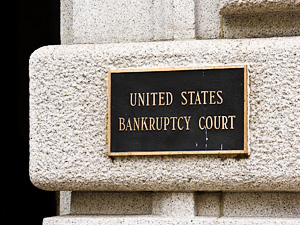
After the banking crisis and the debacle surrounding the collapse of MG Rover, a British car manufacturer, it’s surely time for a rethink of corporate limited liability.
The Phoenix Consortium, an ad-hoc partnership of four businessmen friends led by John Towers, extracted at least £9 million each from MG Rover, thanks to a sum of just under £500 million paid to them by BMW to take the firm off their hands. In May 2000 the Consortium purchased MG Rover through a company, going by the name of ‘Techtronic’, that they set up with £60,000 each of their own money. This holding company profited from interest on BMW’s £500 million while paying none. This profit was transferred to a higher tier holding company, Phoenix Venture Holdings (PVH) of whom the controlling and main beneficiary owners were the Phoenix four.
The four partners failed to find a joint venture partner for Rover, and in April 2005 it went bankrupt owing £1.2 billion to its creditors, including the pension fund of its own workers. For this work and its failure and their investment of £60,000, each of the Phoenix four received the equivalent of over £2 million per annum (excluding the benefits from MGR Capital). Even by current inflated standards of boardroom pay, this would be excessive for success but for failure it is absurd.
The mismatch between the financial losses of MG Rover and the financial gains of the Phoenix four are a function of limited liability. This legally limits the losses of company shareholders to no more than the value of their initial investment. The Phoenix four were in fact three times removed from the MG Rover losses, through their shareholdings in PVH, through PVH’s ownership of Techtronic and through Techtronic’s shareholding in MG Rover.
Limited liability is claimed, by reducing the potential risks to investors, to promote the raising of equity finance and increase the resources available for corporate and national economic growth and welfare. The evidence from economic history is not overwhelming. Moreover, as the importance of stock markets and the size of speculative capital flows have increased since the early 1980s, world growth rates and labour productivity have fallen as income inequality has risen.
Even Adam Smith objected to limited liability on the basis that it gave an unjustified benefit to ‘a particular set of dealers’. Those that benefit most are the wealthiest 10% of the US and UK populations that own (directly and indirectly through pension funds etc.) around 70-80% of corporate equity. The violation of the principle of equality before the law is even more perverse given the granting of rights, such as free speech and privacy, to companies on the basis that they should share the status of persons.
Since any civil action launched cannot proceed beyond the ‘veil’ of limited liability, the proper apportioning of responsibility is made difficult, especially so when the shareholder is yet a further limited liability company, as is common in modern multinational enterprises. This certainly seems to have been the effect if not the intention of the corporate structures established by the Phoenix Consortium following their takeover of MG Rover Group.
The existence of limited liability implies a benefit to the rest of us from a thriving business with access to investment from as many sources as possible, including small investors. So we have a legitimate interest in considering changes that would serve the general good more effectively. There are two possible approaches. Limited liability could be refined by recognising the extent to which companies are directly controlled by and integrated with each other and by apportioning financial responsibility to shareholders according to the size of their holding. As an alternative to this, limited liability can be counter-balanced by shifting the control of businesses to a more diverse group of those affected by their actions than simply their financial investors. This would see representation on company boards not just of employees, as in the German Mitbestimmung system, but also of suppliers, customers and residents of the area(s) of operation of companies. What is certain is that companies and their shareholders cannot continue to have it both ways.
See a longer and more detailed version of this article. (pdf 35.7kb)